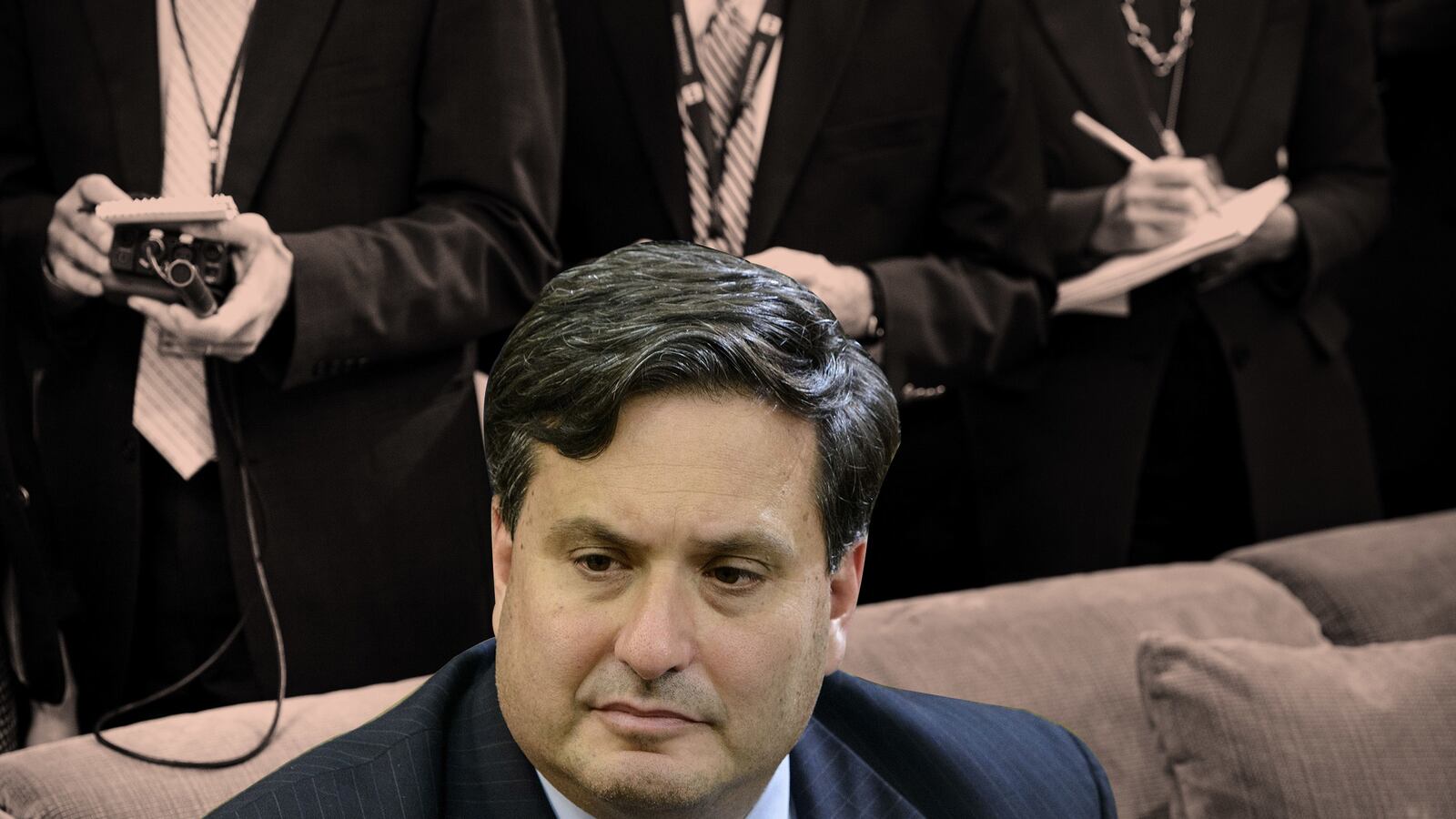President Obama’s appointment of Ron Klain, who served him as a White House aide and was chief of staff for two vice presidents, Al Gore and Joe Biden, to head the country’s response to the Ebola crisis has predictably elicited the complaint that Klain is not a doctor.
In an age of specialization, the complaint is understandable, but it’s also a reminder of our suspicions of those William H. Whyte Jr. once labeled “organization men.” Whyte, a writer for Fortune magazine, popularized the term in his 1956 study The Organization Man, and since then, the term has been applied to, among others, a managerial class that specializes in dealing with large bureaucracies.
In the ’50s, when Sloan Wilson’s novel The Man in the Gray Flannel Suit topped the bestseller lists (and soon thereafter became a hit movie), the organization man was viewed as the personification of a culture of conformity. Then and now, there are organization men who fit that description, but at the level at which Klain has been asked to operate, organization men, skilled at coordinating the work of the government and private industry, have also been vital to the nation. They, like Klain, deserve to be seen through a historical lens before we rush to judgment.
During World War II, when America was desperate to build enough ships to get troops and supplies into battle, President Franklin Roosevelt did not choose a high-ranking admiral to lead the effort. Instead, he reached out to Henry Kaiser, the 60-year-old industrialist who was instrumental in the construction of Boulder Dam and the Oakland-San Francisco Bridge.
Although new to the shipping industry, Kaiser proved a success in turning out the ships America needed. As historian Doris Kearns Goodwin has noted, under Kaiser’s leadership the average time it took to build a ship went from 355 days in 1940 to 60 days by early 1942. Kaiser realized the key was applying the techniques of mass production to shipbuilding and training workers on the job rather than through a traditional apprentice program. He also understood that it was essential to meet the needs of a wartime workforce; health-care and day-care centers became part of his shipyards.
After World War II, President Harry Truman had equally good results when he appointed Paul Hoffman, the president of the Studebaker Corporation, to head of the Economic Cooperation Administration (ECA), the agency charged with running the Marshall Plan, America’s massive effort to restore economic stability in postwar Western Europe.
Truman might have appointed a diplomat from the State Department to do the job, which required dealing with foreign governments as well as coordinating aid efforts, but instead he chose a manager who in his memoir, Peace Can Be Won, acknowledged that most of his adult life had been spent “developing products, studying markets and determining how best to persuade people to buy my company’s wares.”
Hoffman went to work less than a week after the Marshall Plan became law, and in running the ECA from 1948 to 1950, he showed himself as efficient in managing a government agency as he had been in managing a private corporation. The ECA remained free from fraud and corruption under Hoffman’s leadership, and despite being a Republican, Hoffman did not hesitate to challenge Republicans in Congress when they threatened to cut Marshall Plan aid.
It’s anyone’s guess whether in this era of political polarization Klain will prove as effective as Kaiser and Hoffman were. Klain is a lawyer by trade, and after leaving the White House, he became a partner in the Washington lobbying firm of O’Melveny & Myers.
Klain’s greatest liability at this point may be President Obama, who has continually had to take back his assurances that health and government officials were on top of the Ebola crisis. A CBS News poll found that approval of the Centers for Disease Control and Prevention has dropped from 60 percent last year to 37 percent today. The good news is that, like Kaiser and Hoffman in the ’40s, Klain starts his job with the public aware that, in dealing with Ebola, America faces a challenge that cannot be handled locally or piecemeal.
Nicolaus Mills is professor of American studies at Sarah Lawrence College and author of the forthcoming book, Every Army Man Is With You: The Cadets Who Won the 1964 Army-Navy Game, Fought in Vietnam, and Came Home Forever Changed.





